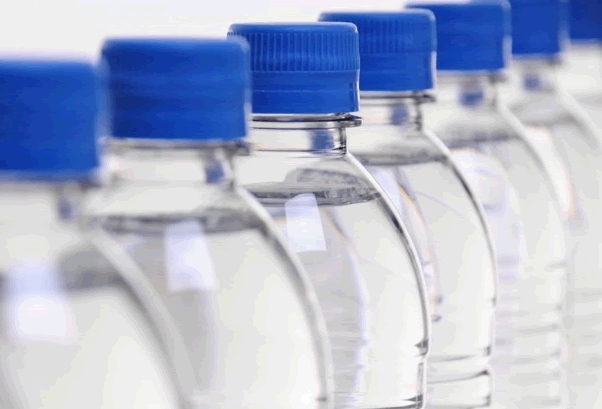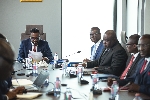Suspend 5% excise tax on finished plastics – NASPAWAP tells gov’t
 NASPAWAP proposed an alternative approach including reducing the environmental excise tax rate to 1 per cent at entry points
NASPAWAP proposed an alternative approach including reducing the environmental excise tax rate to 1 per cent at entry points
The National Association of Sachet and Packaged Water Producers (NASPAWAP) has aligned with plastic manufacturers in urging the government to indefinitely suspend the recently imposed 5 per cent excise tax on finished plastics.
The association warns that this tax would significantly burden consumers.
In a statement, NASPAWAP highlighted the substantial price increases in bottled and sachet water since January 2024, attributing these hikes to the cedi’s depreciation against the US dollar.
They argue that the 5per cent excise tax, intended to mitigate environmental issues caused by plastics, would exacerbate the financial strain on consumers.
“We believe the motive for the 5 per cent extra excise tax would be to rake in funds to tackle the menace plastics are posing to the environment,” the statement read.
The association continued that: “There is an existing 10 per cent environmental excise tax on selected plastics at the ports of entry. We were part of the decision to tax plastic granules at the entry ports.
“This method broadens the tax base since all plastic granules are imported. However, at the implementation stage, only a selected few were captured.”
NASPAWAP proposed an alternative approach including reducing the environmental excise tax rate to 1 per cent at entry points, applicable to all imported plastic granules, and imposing a 10 per cent tax on the CIF value of semi-finished plastics imported into the country.
The association believe this method would generate more funds for plastic management than the contentious 5 per cent tax on finished products.
“Our suggestion to the government is to reinforce the environmental excise tax at the entry points by reducing the tax rate to 1% and making it applicable to all imported plastic granules without any exceptions.
“However, semi-finished plastics imported into the country should be taxed 10% of the CIF value. We believe this will rake in more funds for plastic management than the additional 5% excise tax imposition on finished plastics,” the statement noted.
The association also underscored the lack of government support for plastic management initiatives “We also wish to put on record that since the inception of plastics in this country, all interventions in respect of managing plastic have been solely borne by the private sector.
“From the collection point to the recycling stations, there has not been any subsidy from the government to the collectors, etc.,” the statement added.
It therefore called on government to “heed the call to suspend indefinitely the additional 5% excise on finished plastics, and engage with stakeholders.”
Source: classfmonline.com/Elikem Adiku
Trending Business

BoG: Gold crosses $3,000/ounce price, oil jumps 2.4%, cocoa tumbles 8.5%
05:07
Fiscal performance sees improvement – BoG Governor
05:03
Bank assets grow 34%, CAR rises to 14.4%, NPLs fall to 22.6% – BoG
05:00
Inflation expectations softening – BoG
04:58
‘Business, consumer sentiments improve significantly’ – BoG
04:55
Economic growth ‘exceeds expectations’ – Asiama
04:46
DVLA saddled with 'dirty' debts: CEO
21:55
Legacy Crop CEO calls for effective implementation of agricultural policies
11:08
It’s not a crime for businesses to make profits - Amin Adam chastises gov’t over reintroduction of sustainability levy
02:08
Reintroduction of Special Import Levy is a betrayal of the trust of Ghanaians - Amin Adam to Finance Minister
01:56



